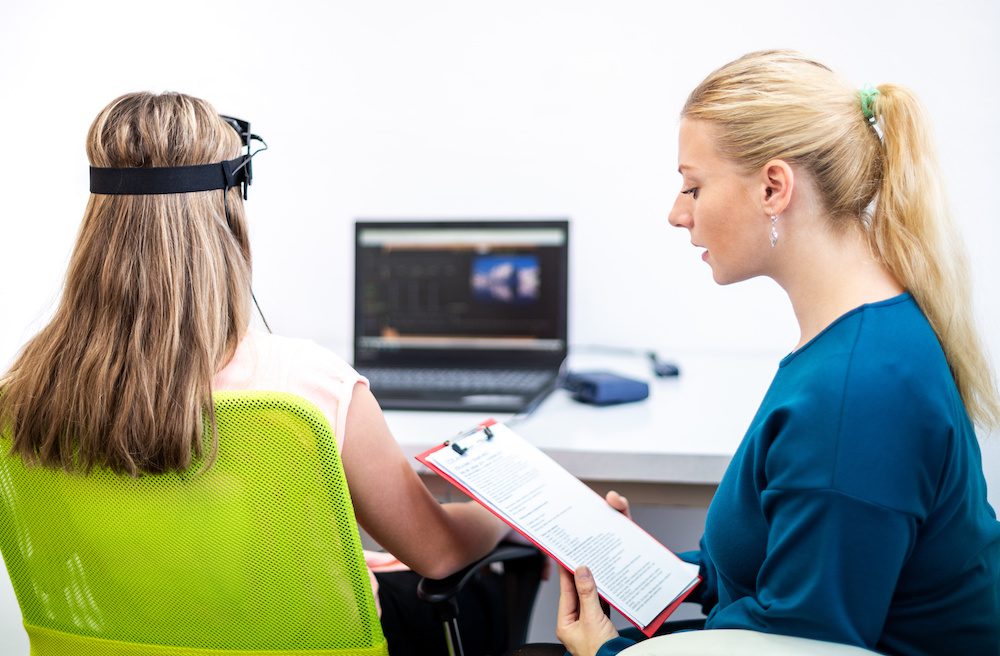
The Benefits of Neurotherapy
There has always been a need for alternative forms of treatment. After all, we are a society full of individuality that thrives off having options. Not every person who struggles with addiction or depression finds equal relief from psychotherapy or medications. Specialized therapies are continuing to make momentum, showing that progressive and alternative approaches for treatment are not only effective, but needed in today’s wellness marketplace.
What Is Neurotherapy?
Being able to understand the “why” behind our behavior can bring relief to a lot of people who are struggling with addiction or any maladaptive behavior. Neurotherapy, also known as biofeedback, allows for an individual to monitor and measure certain physiological and mental states. This is usually done by using Electroencephalography (EEG) that helps to record brain activity while a person is engaging in the activity. Doing this in real-time allows for useful information to be determined, such as why certain symptoms may be occurring based on what is happening in that moment in the person’s brain. Biofeedback has been shown to successfully help individuals manage their stress, control their blood pressure, and help to alleviate maladaptive behaviors.
States of neurophysiological over-stimulation or under-stimulation have been shown to contribute to why individuals manifest symptoms of anxiety, depression, and other negative emotions which give rise to stressful conditions. By tracking brain wave activity and patterns, the treatment team is able to gather information to help train the brain operate more efficiently and effectively. Ultimately, neurotherapy gives individuals an alternative means of taking control and self-regulating certain moods, states, and even some behaviors that are considered maladaptive or unwanted.
How Does It Work?
Biofeedback is based on operant conditioning, which is a form of training that involves reinforcing a desired behavior. For example, when patients inhibit certain brain wave frequencies that are desirable, they are then rewarded when that brain pattern occurs, causing the consequence of the response to be determined and the probability of the response to be repeated. This can be done by placing electrodes on the scalp that will provide instantaneous feedback that can help to gradually recondition brain activity.
After the Neurotherapy process is complete, the results are discussed in detail between the patient and the treatment team. From here, the therapist and patient can work together to figure out if certain physical symptoms are occurring due to the neurophysiological experience that the patient is having. This can help create a training program that targets underlying physiological factors and will ultimately help alleviate unwanted symptoms. Each treatment protocol is unique; the overall goal is to help the brain find balance within the areas that have shown to be either over-stimulated or under-stimulated.
Individuals who are experiencing symptoms of over-stimulation tend to have an excess in beta brain waves and a decrease in SMR brain waves. Examples of an over-stimulated brain include:
- Having a restless, busy mind
- Being impulsive and fidgety
- Being hyperactive
- Feeling agitated or anxious
- Feeling overwhelmed
- Frequent tension headaches
- Difficulty falling asleep
People who are under-stimulated have excess theta brain waves and a decrease in beta brain waves. Examples can include:
- Forgetfulness
- Lack of motivation
- Depression
- Lethargy
- Insomnia
- Low self-esteem
Neurotherapy is a painless, non-invasive, non-pharmaceutical procedure that can be easy, informative, and an overall pleasurable experience for patients. As with any other type of treatment, results will vary. It is important to receive feedback about the effects of the training during the first few sessions to help determine if the patient is responding to this type of treatment. It is estimated that 70-80% of people are able to be effectively treated through Neurotherapy. Changes in behavior that should be observed after training sessions can include:
- State of relaxation
- Clarity of thinking
- Levels of anxiety
- Any changes in mood
- Physical attributes including tension, headaches, or other forms of physical discomfort
Who Can Benefit From Neurotherapy?
Neurotherapy is continuing to make headway in becoming an alternative form of treatment for people seeking relief from various conditions. Individuals who have benefited from Neurotherapy include:
- People who are looking for a natural means of treatment
- Individuals who do not respond well to traditional treatment approaches, or who do not prefer to use medications
- If an individual is looking for a secondary form of treatment adjunct to psychotherapy or prescribed medications
- Anyone interested in increasing healthy brain functions to help improve attention cognition and reduce stress
Neurotherapy has also been shown to benefit those who might be experiencing symptoms of depression, anxiety, obsessive-compulsive disorder (OCD), and substance abuse disorders.
When getting help for mental health disorders or addictions, explore every option available to you. The world is constantly growing and evolving, allowing for more alternative forms of treatment for people with different types of problems. Through the use of Neurotherapy, individuals are given an alternative to help alleviate or eliminate some of their struggles. This form of treatment does not work for everyone, but it’s an option that should be considered when evaluating your treatment plan. Our brain is a magnificent part of our being. It’s responsible for almost everything we do or how we react, so being able to understand its patterns more clearly can help us in many ways, especially when we are dealing with maladaptive behaviors. We want to provide you with alternative, progressive ways to not only treat your body but your mind. At RECO, we use multiple cutting-edge therapeutic modalities that focus on the brain’s unique rhythms. Reach out to RECO Intensive today at (561) 464-6533.